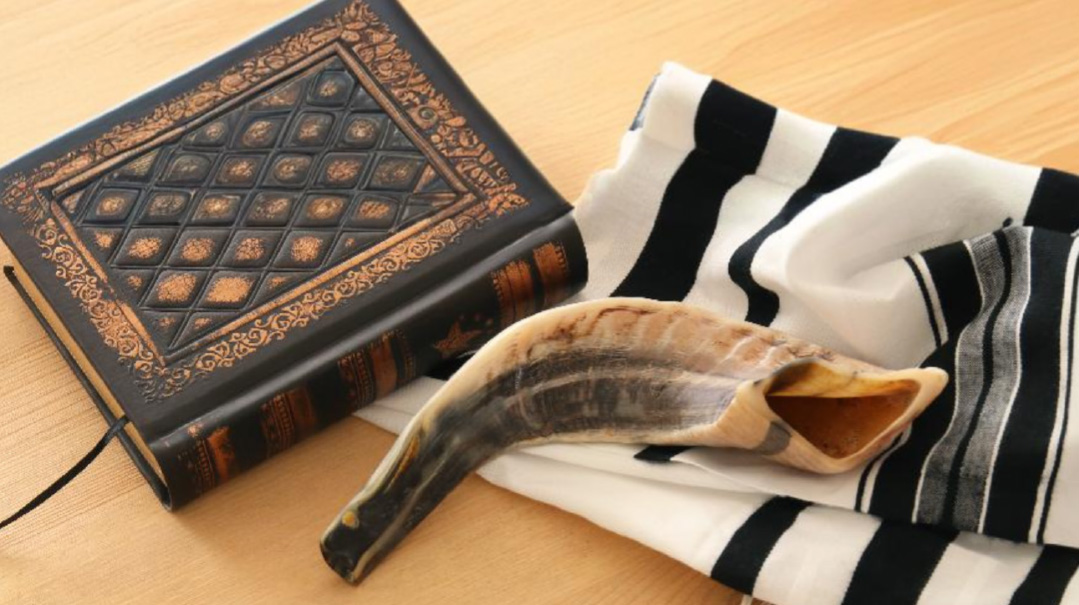A Plank to Hold On To

We happily send our children to yeshivah. But do we give them the tools they need to succeed?

In last month’s column, we described how many yeshivah bochurim suffer from the pressure to be the best. Outshining their peers is the only way they discern to fulfill their inner need to feel singular. Although it’s important to discuss methods to cope with that stress, I would like to explore ways to prepare our bochurim before their yeshivah years, so the pressure won’t overwhelm them in the first place.
The Gemara at the end of Yevamos recounts how Rabi Akiva’s ship sank in a storm. His demise seemed certain. Yet Rabi Akiva reached the shore, safe and sound. He described how he grabbed a plank that had broken off from the sinking ship. Every time a wave approached, Rabi Akiva held on to the plank and lowered his head, allowing the wave to pass over him. The Gemara then applies this technique as a metaphor for how to survive negative forces that come upon a person. First of all, you have to lower your head. Don’t fight the wave; just let it pass. But to do that, you need a plank to hold on to. Something small but firm that allows you to stay afloat even when a wave crashes down upon your head.
There’s no question that the tremendous pressure in yeshivos is a mighty wave. Some bochurim are crushed by it; others run away from it, and even leave yeshivah altogether. That’s an unnecessary tragedy. The pressure, like the waves of Rabi Akiva, is forceful but temporary. If they can only endure it, they will soon realize how the yeshivah really nurtures them. They will experience the joy of growing into talmidei chachamim and enjoy developing their unique personalities in the world of Torah. But, like Rabi Akiva, they need something to hold on to, so the wave won’t drown them in the meantime.
What is their plank? What can they hold on to and let the wave of pressure pass over them?
I would like to answer this question with a personal anecdote. One of my grown sons recently told me that what helped him more than anything during all his difficulties growing up was a single sentence I told him as a child. I didn’t think much about it at the time, but that sentence, he said, carried him through. One day he came home, and I could tell something had happened to him. He told me that an adult had become angry at him and given him a good slap.
I reacted with visible shock: “What? He hit you? You’re going to be a talmid chacham one day, and he dared to hit you?”
Over the years, said my son, he experienced many turbulent times when his self-worth was threatened, but that one sentence gave him the confidence he needed to continue his journey in Torah.
Every bochur longs to feel singular. The problem is that when he begins his yeshivah career, he’s not likely to experience that feeling if he’s not the best. He will constantly be stressed, or give up and conclude that he’s a nobody in the world of Torah. But if before he begins his yeshivah years he is equipped with a firm testimony to his individual worth, he can hold on to that plank and simply let the pressure pass over him.
Where does he get that testimony? It could be from his parents, his rebbi, or some other figure he reveres and trusts. It has to be a clear and personal message. It has to be genuine. It has to be delivered with absolute certainty. Words of encouragement won’t do the trick — he won’t trust their sincerity enough. He has to see that we really believe what we’re saying.
It’s not enough to praise him for his performance in school. If we only compliment him for his achievements, his self-worth will be built on a flimsy foundation. As soon as his performance is less than stellar, his feeling of singularity will evaporate. We have to give him confidence in his intrinsic value that isn’t contingent on any external factors. If a bochur has that, he won’t need to see his singularity verified every minute. Even if it’s temporarily concealed, he will know it’s still there, and he can hold on till it’s revealed again.
We might feel tempted to say, “What’s the big deal? Baruch Hashem, my son has healthy self-esteem!”
Let’s not fool ourselves. Before yeshivah, a bochur may have excelled in school. He may have enjoyed friends who held him in esteem. All of those sources of confidence were like boards in his ship. He had a whole vessel to securely traverse the sea.
But when he enters the yeshivah, in an instant all of that is gone. He is surrounded by hundreds of bochurim who’ve never heard of his past achievements. His maggid shiur doesn’t know him either. And he will likely find he doesn’t stand out among his talented new peers. Just as a storm tears a sturdy ship apart, the many sources of confidence he had in the past are quickly forgotten. He is in danger of drowning in the anonymity of ordinariness.
But he doesn’t need a whole ship. If he has even one solid plank, he can still stay afloat. But it needs to be a plank that’s durable enough to survive a storm!
We need to be honest with ourselves. We happily send our children to yeshivah. But do we give them the tools they need to succeed? Do we equip them with the plank they need to stay afloat? If we don’t prepare them adequately, we’re the ones to blame if the pressure crushes them!
It’s not enough to give them a pep talk before they go: “You can do it!” From an early age, we must consciously work to instill in our children the simple faith that they have intrinsic and singular value. We need to pay keen attention to our children’s traits and talents. Then we have to seek opportunities to convey what we’ve found to them, in a genuine and memorable way.
I don’t mean you should sit your child down and tell him, “I just want to let you know how special you are.” That certainly won’t have the intended effect. Our children learn what is real and important to us not through the rehearsed speeches we give, but through the way we react to and deal with real-life scenarios. Life’s constant surprises, the small occurrences we often brush aside, provide ample opportunities to convey the messages we want our children to internalize.
But we need to be prepared for those moments. If we live attentively, over the years we will find many occasions to show our children that they are remarkable. Each one is a potential plank. We can’t know which one will prove effective, so we’d better offer them a lot to choose from! Then, when the storm comes, and our son’s ship is dismantled, one of those planks will emerge from the raging sea and come to his aid.
In truth, this is a skill we need in many areas in life. How much would our shalom bayis and interpersonal relationships improve if we noticed the special qualities of others, and made it a point to give them a meaningful compliment here and there? But let’s start with our children. We faithfully provide them with all their needs. Let’s not overlook this subtle but crucial one!
Prepared for print by Rabbi Eran Feintuch.
(Originally featured in Mishpacha, Issue 818)
Oops! We could not locate your form.








Comments (0)